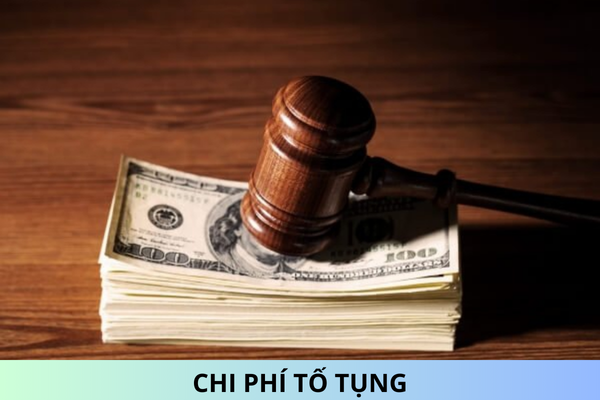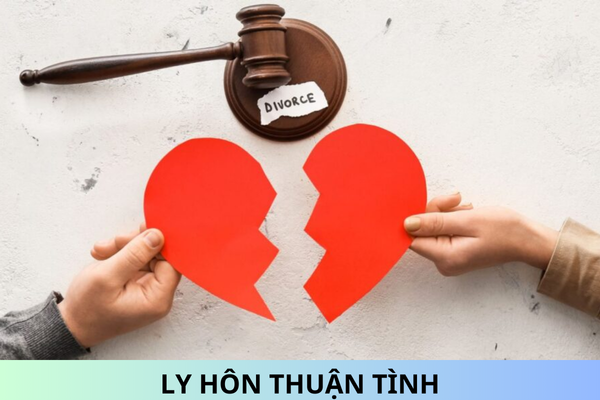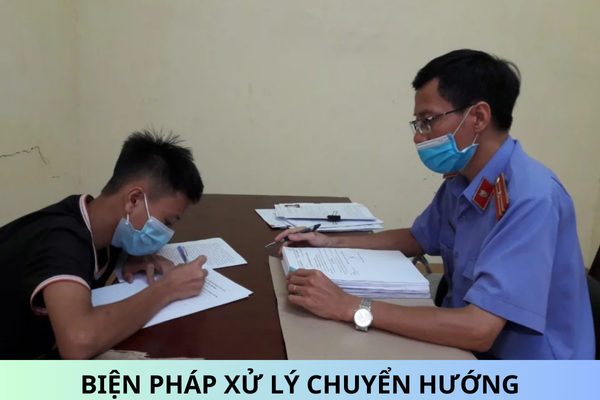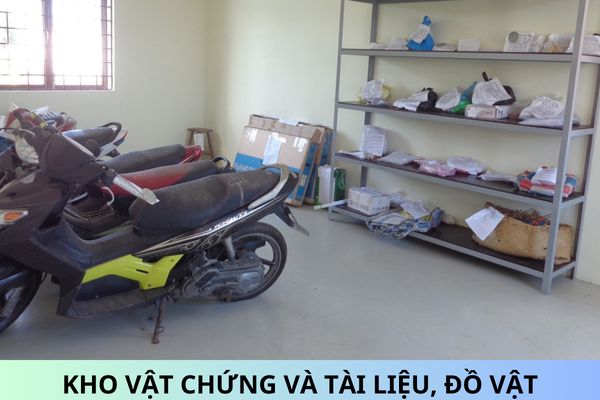What are law regulations on approval of warrants for arrest of detainees in case of emergency in Vietnam?
What are law regulations on approval of warrants for arrest of detainees in case of emergency in Vietnam? What are regulations on exercising the right to prosecute and supervise custody in Vietnam? What are regulations on approval of orders to arrest the accused for temporary detention, temporary detention orders, decisions to apply, change or cancel temporary detention measures in Vietnam?
Please advise. Thankyou.
What are law regulations on approval of warrants for arrest of detainees in case of emergency in Vietnam?
In Article 15 of the Regulation on exercise of the right of prosecution and supervision of the filing of charges, investigation and prosecution, issued together with Decision 111/QD-VKSTC in 2020, there are provisions on approval of warrants for arrest of detainees in case of emergency are as follows:
1. Immediately after receiving the application file for consideration and approval of an urgent arrest warrant, the procurator must conduct the following activities:
a) Check the file, ensure sufficient documents and evidences according to Clause 5, Article 110 of the Criminal Procedure Code ; in case there are not enough documents and evidences, the requesting agency for additional approval shall be requested;
b) Determination of competence and grounds for emergency detention according to the provisions of Clauses 1 and 2, Article 110 of the Criminal Procedure Code .
In case, through the study of records, there are signs of abuse of detention in an emergency or there are not enough grounds to detain people in an emergency or the detained person pleads not guilty, the documents and evidence in If there are conflicting records, the person detained is a foreigner, a person of religious dignitaries, a public figure, an intellectual, a prestigious person among ethnic minorities, or in other necessary cases, the Procuracy Members must directly ask the detainee before reporting or proposing to the unit leader, the Institute leader to consider and decide on the approval. When it is necessary to ask the detained person in an emergency, the procurator shall notify the agency competent to investigate in advance for cooperation in the questioning process. Minutes of testimonies of the detainee made by the procurator must comply with the provisions ofArticle 133 of the Criminal Procedure Code and according to the Form promulgated by the Supreme People's Procuracy, shall be included in the case or case file and kept in the supervision file.
2. Within 12 hours after receiving the application file for consideration and approval of an arrest warrant for persons detained in an emergency, the Institute's leadership must decide whether to approve or disapprove it; This period is calculated continuously, both during and outside working hours.
What are regulations on exercising the right to prosecute and supervise custody in Vietnam?
In Article 16 of the Regulation on exercise of the right of prosecution and supervision of the filing of charges, investigation and prosecution, issued together with Decision 111/QD-VKSTC in 2020, there are provisions on exercising the right to prosecute and supervise custody as follows:
1. Immediately after receiving the custody decision and the application for approval of the custody extension decision from the investigating authority, the procurator shall examine the groundability and legality of the temporary detention. custody and temporary detention extension for reporting and proposing leaders of units, leaders of the Institute to handle as follows:
a) If the custody decision is found to be unfounded or unnecessary, issue a decision to cancel the custody decision and request the agency that issued the custody decision to immediately release the person held in custody as prescribed in Clause 1 of this Article . 4 Article 117 of the Criminal Procedure Code;
b) If it is found that the extension of the temporary detention is grounded and necessary, within 12 hours from the date of receipt of the application for approval of the decision to extend the temporary detention, the leader of the Institute must issue a decision to approve it. decision to extend detention. If finding that the temporary detention extension is unfounded or unnecessary, issue a decision not to approve the decision to extend the temporary detention and request the agency that has issued the custody decision to immediately release the person held in custody in accordance with regulations. defined in Clause 2, Article 118 of the Criminal Procedure Code. In case the procuracies have approved the first custody extension decision but have not approved the second custody extension decision, the procuracies shall issue a release decision.
2. Every day, the Procuracy must supervise the number of people arrested, detained or detained, the number of people transferred to temporary detention, the number of people released from prison or applying other preventive measures, and the number of people. the police did not approve the arrest of persons detained in an emergency, did not approve the extension of the detention period, the number of persons arrested or detained but not criminally handled; detecting and summarizing violations of the investigating authority. Every week, the lower procuracies summarize and report to the immediate superior procuracies in writing.
What are regulations on approval of orders to arrest the accused for temporary detention, temporary detention orders, decisions to apply, change or cancel temporary detention measures in Vietnam?
In Article 17 of the Regulation on exercise of the right of prosecution and supervision of the filing of charges, investigation and prosecution, issued together with Decision 111/QD-VKSTC in 2020, there are provisions on approval of orders to arrest the accused for temporary detention, temporary detention orders, decisions to apply, change or cancel temporary detention measures as follows:
1. Within 3 days after receiving the order to arrest the accused for temporary detention, the temporary detention order, the written request for consideration and approval and the dossiers related to the temporary detention, the procurator shall examine the documents, evidences, compare them with the provisions of Articles 113, 119 and 173 of the Criminal Procedure Code to determine the competence, subjects, grounds, temporary detention conditions and duration of detention for each accused; report, propose the leader of the unit, the leader of the Institute to consider and decide to approve or not to ratify and return the dossier to the agency requesting approval immediately after the end of the ratification review. For cases where the accused is detained in custody after the case has been instituted, the time limit for temporary detention must not exceed the time limit for investigation of the case.
If the grounds are not clear, they shall issue a written request to the ratification-requesting agency for additional documents and evidences to clarify the grounds for consideration and decision on ratification. In this case, the time limit for consideration and approval is 03 days from the date the Procuracy receives additional documents and evidences.
Procurators must stamp the records of the Procuracy on documents as a basis for consideration and approval and return the dossiers to the investigating agency immediately after the approval is finished.
2. If it finds that there are enough grounds for temporary detention of the accused as prescribed in Article 119 of the Criminal Procedure Code and it is necessary to temporarily detain the accused, the investigating authority does not issue an order to arrest the accused for temporary detention or temporary detention. In case of detention, the procurator who accepts the case shall report and propose to the unit leader or the Institute leader to issue a written request to the investigating authority to issue an order to arrest the accused for temporary detention or temporary detention; if the investigating authority fails to do so, the procuracies shall issue an order to arrest the accused for temporary detention, a temporary detention order and transfer to the investigating agency for implementation.
3. After approving the warrant for arrest of the accused for temporary detention or the order for temporary detention of the accused, the procurator in charge of handling the case must closely supervise the execution of the order and the duration of the temporary detention of the accused in order to promptly report it, propose unit leaders, Institute leaders to resolve as follows:
a) During the investigation period, if the time limit for temporary detention is still valid, but deems that the measure of temporary detention of the accused is no longer necessary, the procuracies shall request the investigating bodies to issue a written request to the procuracies to decide on temporary detention. the cancellation of the temporary detention measure or its replacement by another preventive measure;
b) 10 days before the expiration of the temporary detention time limit, if the investigating authority has not yet sent a written request to the procuracies to extend the temporary detention time limit for the accused, the procurator shall request the investigator to report to the head or deputy head of the detention facility. The investigating authority shall issue a written request to extend or change or cancel the temporary detention measure.
At least 5 days before the expiration of the temporary detention time limit, the procurator must report to and propose the leader of the unit or the Institute to consider and decide to extend the temporary detention or change or cancel the temporary detention measure.
4. The procuracies must firmly grasp the temporary detention data; closely monitor and manage cases of refusal to approve the arrest warrant for the accused for temporary detention, failure to approve temporary detention orders, failure to extend temporary detention, decisions to cancel or replace temporary detention measures, cases of temporary detention and temporary detention. detained but stopped investigating because the accused did not commit a crime or the Court declared no crime to report to the unit leader, the Institute leader. Every month, the lower procuracies summarize and report to the immediate superior procuracies in writing.
Best Regards!











